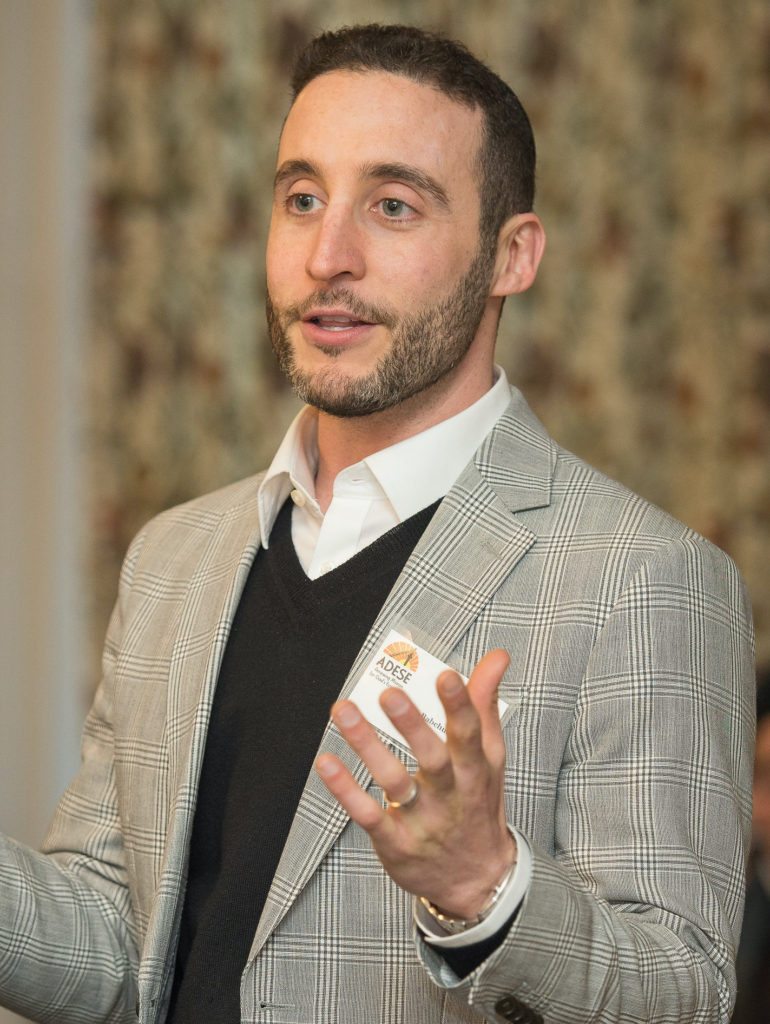In our parashah (Torah reading) this week, we find ourselves encountering an old friend, Korach – the rebellious cousin of Moses – who each year reminds us of our own inner rebel just waiting to come out. Perhaps we read of his uprising against Moses and the Priesthood with admiration; he calls them out for hoarding power and holding down the people, a righteous voice of dissent. Or maybe we engage with Korach less favorably; it’s not hard to imagine that someone who eventually gets swallowed up by the earth as punishment might’ve erred in his actions.
While his end is both memorable and notable, though, it’s the very first words describing his mutiny that I come back to each year with curiosity. The text opens by saying that Korach “Took himself, and the others that joined him, to go object to Moses,” which Rashi (11th-century French rabbi and commentator extraordinaire) clarifies this phrase as “separating himself from the community.” In order to build up the courage to accuse Moses and his brother Aaron of corruption, he must first pull himself away from them. Without that physical and emotional distance from his cousins, perhaps it would be too difficult to treat them with such disdain, in public no less.
Each year, as I come upon this text, I think to myself,
“How far we’ve fallen in our broken world. With each tweet, each post, each comment, we build ever-widening moats around our rage such that we can direct it at anyone and everyone with no repercussions. No feelings of remorse because we’re at such a great distance that we can’t even see the impact of our words where they land. Moreover, there is no earth waiting to swallow us up, no holy fire to consume us. It can’t possibly get any worse, can it?”
And each year, I’m wrong.
A Talmudic commentary about Korach (Sotah 4b) teaches that Korach’s major fault was his haughtiness; not only did he separate himself from his community, but he did so by judging others harshly. And the further he separated himself from each of them, the easier it was to assume the worst about them. Reb Nachman of Breslov taught a story about Korach’s accusatory exchange with Moses, in which Korach challenged his cousin regarding the matter of tzitzit – the four strands that hang from the corner of a tallit.
While the imagined back-and-forth between them is fascinating, Reb Nachman’s note about the subject of tzitzit is most important. He writes,
“The word tzitzit is related to the verb lehatziz (to look), as the mitzvah of tzitzit is to bear witness, to see the strands with our eyes and to be moved by what we see.”
In Reb Nachman’s eyes, the tragic irony of Korach’s ill-fated uprising is that he could no longer truly see Moses as he was; but only as Korach – who had long ago separated himself from his cousin – had imagined him to be.
As the Irish playwright George Bernard Shaw once noted in Man and Superman:
“The only man I know who behaves sensibly is my tailor; he takes my measurements anew each time he sees me. The rest go on with their old measurements and expect me to fit them.”
As we celebrate the holiday of our country’s independence, let us not allow the tradition of coming together with our close ones to dictate that we must also drift farther apart from everyone else. Instead, let us take Shaw’s advice – and Reb Nachman’s insights – to heart. To behave sensibly in a moment like this is to see each person, each moment, and even our great but complicated country (and all those in it – even the ones who don’t vote or pray or protest like we do), as Shaw’s tailor saw him: with new eyes.

Rabbi Elan Babchuck is committed to leaving behind a world that is more compassionate and connected than the one he found. In pursuit of that commitment he serves as the Executive Vice President at Clal, the National Jewish Center for Learning and Leadership, and the Founding Executive Director of Glean Network, which partners with Columbia Business School. He was ordained in 2012, and earned his MBA that year, as well.
A sought-after thought leader, he has delivered keynotes at stages ranging from TEDx to the US Army’s General Officer Convocation, published in The Atlantic, The Guardian, Washington Post, and Religion News Service, has a column for The Wisdom Daily, contributed to Meaning Making – 8 Values That Drive America’s Newest Generations (2020, St. Mary’s Press) and is the co-author of the forthcoming book Picking Up the Pieces: Leadership After Empire (2023, Fortress Press).
He also serves as:
a Founding Partner of Starts With Us, a movement to counteract toxic polarization in America,
a Research Advisory Board Member of Springtide Research Institute, which focuses on spirituality, mental health and Gen Z,
a founding board member of Beloved Network, a network of startup Jewish communities, and
a member of the Board of Advisors of the Changemaker Initiative.
He lives in Providence, Rhode Island with his wife, Lizzie Pollock, and their three children: Micah, Nessa, and Ayla. In his spare time, he finds sanctuary while climbing rock walls around New England and tending to his backyard garden.

